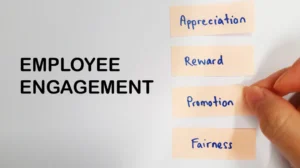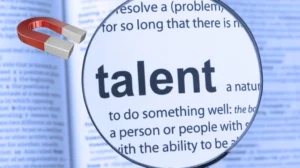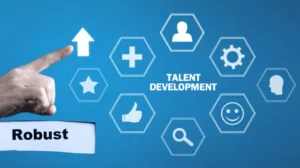Why Employers Value Emotional Intelligence and Adaptability
Published by: Can X Global Solutions Inc.
In today’s hiring landscape, the spotlight is often placed on resumes a neatly polished list of qualifications, degrees, and professional experiences. But as hiring managers know all too well, technical expertise alone rarely guarantees long term success. The ability to navigate complex human dynamics and embrace constant change is what sets exceptional employees apart. This is where emotional intelligence (EQ) and adaptability come in.
Companies aren’t just seeking candidates who can perform tasks; they’re searching for individuals who can connect, evolve, and help their teams and organizations thrive in uncertain environments. Let’s dive deeper into why EQ and adaptability have become hiring essentials and how they can impact the modern workplace.

With technological advancements, automation, and artificial intelligence transforming industries, the workplace is evolving faster than ever before. While hard skills like coding, data analysis, or accounting remain crucial, they can often be learned or replaced. Soft skills, however, are the human differentiators that enable employees to adapt to these changes and connect meaningfully with others.
Think of it this way: A team member may have cutting edge expertise, but without emotional intelligence or the flexibility to adjust to new dynamics, they may struggle to collaborate or lead effectively. Employers now recognize that EQ and adaptability directly influence how well teams operate and businesses grow.
Emotional intelligence goes beyond simply “being nice” it’s about understanding emotions (both your own and others’) and using that awareness to manage relationships and situations effectively. High EQ enables employees to:
- Build Trust and Strong Relationships Employees with strong EQ foster deeper relationships by showing empathy, active listening, and understanding others’ perspectives. Teams with emotionally intelligent individuals are more likely to collaborate effectively and avoid unnecessary conflicts.
- Navigate Workplace Conflict with Maturity Disagreements are a natural part of any team. Emotionally intelligent employees know how to defuse tensions, de escalate issues, and bring people together to find solutions instead of letting emotions create division.
- Lead with Empathy and Influence Great leaders often excel in EQ. They inspire loyalty, motivate teams, and recognize when individuals need support or encouragement. Leaders with high EQ can balance results with relationships, creating a healthier and more productive environment.
- Enhance Client and Customer Relationships In client facing roles, emotional intelligence is a game changer. Whether it’s managing a difficult conversation or understanding a customer’s needs, emotionally aware employees deliver better service, leading to long term loyalty and satisfaction.
Adaptability refers to the ability to adjust, pivot, and remain effective in response to evolving circumstances. In a world where change is constant from new tools to shifting markets adaptable employees become invaluable assets.
- Embracing Change Rather Than Resisting It The most successful employees view change as an opportunity rather than a threat. They take initiative, respond positively to challenges, and set an example for others when the workplace transforms.
- Overcoming Setbacks and Building Resilience Failure and setbacks are inevitable in any career, but adaptable individuals bounce back faster. Instead of dwelling on what went wrong, they analyze what they can improve, adjust their approach, and move forward stronger.
- Learning New Skills Proactively Adaptability often ties to continuous learning. Employees who stay curious and open minded can quickly develop new skills, adopt innovative tools, and remain relevant in competitive markets.
- Driving Innovation Through Flexibility Organizations rely on adaptable employees to brainstorm creative solutions during times of change. Their ability to pivot helps companies remain innovative, agile, and prepared for what’s next.
While the direct benefits are clear, employers also see hidden advantages to prioritizing EQ and adaptability during hiring:
- Improved Workplace Culture: Teams with high emotional intelligence and flexibility create a more supportive, positive environment where individuals feel valued and understood.
- Higher Retention Rates: Employees who are adaptable and emotionally intelligent are more likely to stick around during times of change or uncertainty.
- Reduced Stress and Burnout: Adaptable individuals cope better with pressure, while those with strong EQ help keep teams calm and focused during challenging periods.
While resumes showcase qualifications, identifying soft skills requires a more nuanced approach. Employers can:
- Ask Behavioral Questions: Questions like “Tell me about a time you had to adapt to an unexpected situation” or “How did you resolve a conflict at work?” allow candidates to demonstrate real examples of their skills.
- Observe Emotional Awareness: Pay attention to how candidates interact with others from their communication style to their body language.
- Look for Resilience in Past Experiences: Candidates who have navigated job changes, tough projects, or setbacks often exhibit strong adaptability and EQ.
- Use Role Plays or Scenarios: Situational tasks reveal how candidates react in real time to change or pressure, providing clear insights into their emotional and flexible responses.
For job seekers, showcasing emotional intelligence and adaptability can give you a significant edge. Here’s how:
- Share Real Life Stories: In interviews or cover letters, use examples where you adapted to change or demonstrated emotional awareness to solve a problem.
- Show Your Growth Mindset: Talk about how you’ve learned from failures, taken on challenges, or developed new skills to improve.
- Be a Great Listener: Listening actively during interviews not only demonstrates EQ but also builds rapport with the interviewer.
- Highlight Flexibility in Your Work History: If you’ve successfully juggled multiple roles, projects, or changes, emphasize how you embraced those challenges.
As workplaces evolve and industries face unpredictable shifts, emotional intelligence and adaptability are no longer just desirable they are necessary. Employers want individuals who bring emotional awareness to their teams, foster better relationships, and drive positive change during turbulent times. For job seekers, cultivating these skills opens doors to opportunities that go beyond technical expertise. For employers, prioritizing EQ and adaptability means building teams that can thrive, innovate, and remain resilient, no matter what the future holds.
In an ever-changing world, the ability to connect and adapt is not just a skill, it’s the foundation of success.
Trusted by Businesses Big or Small







































































